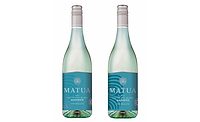U.S. wine exports, 90 percent of which are from California, reached $1.62 billion in winery revenues in 2016, a new record, according to the San Francisco-based Wine Institute. Despite challenges from a strong dollar, winery revenues were up 1 percent from 2015. Volume was 412.7 million liters or 45.9 million cases, it adds.
"California wine exports continue to reflect the trend toward premiumization with the dollar value of our wine sales outpacing volume shipments. California wines are well positioned for this trend — our vintners are offering quality, value, diverse styles and environmental stewardship in their winemaking. Combined with the state's iconic lifestyle, innovative cuisine and beautiful destinations, California wines continue to gain attention from consumers worldwide," said Robert P. (Bobby) Koch, Wine Institute president and chief executive officer, in a statement.
The Top 10 export markets for California wines are: the European Union's 28-member countries, accounting for $685 million; followed by Canada, with $431 million; Hong Kong, $99 million; Japan, $87 million; China, $82 million; Mexico, $24 million; South Korea, $23 million; Switzerland, $19 million; and Singapore, $14 million, the Wine Institute reports.
"California wine exports have grown 78 percent by value in the last decade despite heavily subsidized foreign competitors and high tariffs. Our global trading partners are increasingly acknowledging the high quality of wine from the Golden State and responding to our California Wines marketing efforts throughout the world," Wine Institute Vice President of International Marketing Linsey Gallagher said.
Tom LaFaille, vice president and international trade counsel at the Wine Institute, added: "Trade agreements, such as the North American Free Trade Agreement (NAFTA), have helped to dramatically grow U.S. wine exports, yet discriminatory non-tariff trade barriers continue to be crafted by foreign governments at a steady pace. We applaud U.S. government efforts to eliminate these barriers and strengthen our competitiveness globally, including the World Trade Organization (WTO) challenge against Canada, which seeks to ensure that British Columbia grocery store consumers can choose from the vast array of the world's great wines."


